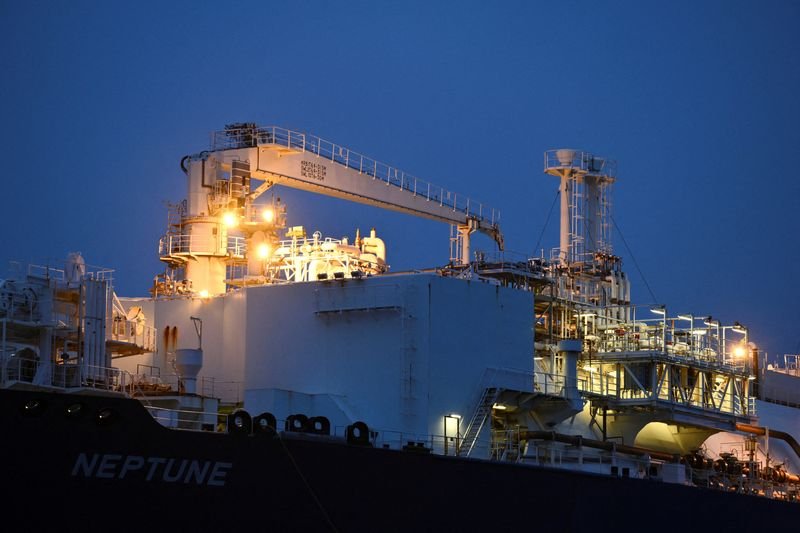Analysis-Ukraine ceasefire hopes offer Europe's markets a tailwind in the shadow of tariffs
Published by Global Banking & Finance Review®
Posted on February 17, 2025
5 min readLast updated: January 26, 2026

Published by Global Banking & Finance Review®
Posted on February 17, 2025
5 min readLast updated: January 26, 2026

Ukraine ceasefire hopes are boosting European markets, easing energy prices, and lifting the euro, despite ongoing US tariff concerns.
By Greta Rosen Fondahn, Danilo Masoni and Yoruk Bahceli
(Reuters) - A ceasefire deal between Russia and Ukraine would take the sting out of heightened U.S. trade tensions and ease pressure on energy prices and the euro, markets bet, while expectations for defence spending have already sent stocks in the sector surging.
President Donald Trump last week ordered U.S. officials to begin talks on ending the war and Secretary of State Marco Rubio arrived in Saudi Arabia on Monday for discussians with Russian officials.
However, neither Ukraine nor European nations are expected to be present at the talks. European leaders will meet on Monday for an emergency summit.
While U.S. tariffs, which have hurt the euro zone growth outlook, remain the bigger driver for European markets, hopes for a potential ceasefire after almost three years of war have boosted sentiment.
The euro, which slumped to more than two-year lows near $1.01 earlier in February, jumped back to $1.05, the STOXX 600 index rose to a fresh record high and German stocks posted their best day in two years last week.
The biggest land war in Europe since World War Two has killed or injured hundreds of thousands of troops on both sides and prompted a surge in energy prices and inflation. An end to hostilities should support European growth.
A ceasefire deal would "decrease energy pricing, which has been a big, big detractor of the European economy and also European assets," said Aymeric Guedy, fund manager at Carmignac.
ALL ABOUT GAS
Russia's invasion of Ukraine wreaked havoc on Europe's energy supplies, sending gas prices over 300 euros ($314.61) per megawatt hour in 2022. They are now around 50 euros, still well above pre-2021 levels.
MUFG says the impact of a potential ceasefire on European economies and currencies, will depend on if and how quickly Russian energy supplies are restored.
Natural gas prices have tumbled, ending last week more than 10% below this month's two-year highs.
Germany's largest chemicals maker BASF, seen as a proxy for a return of Russian gas flows, gained over 5% on Thursday, a day after Trump said he had spoken with Russian President Vladimir Putin. The stock is currently trading around its highest in 10 months, also helped by corporate news.
In Germany, where high energy costs have been a major drag on competitiveness, the blue-chip DAX index posted its biggest daily rise in two years that day.
Expectations for the amount of gas that would return, however, are limited, after Europe's painful efforts to wean itself off Russian gas since the war.
Goldman Sachs expects gas prices to drop 15% if Russian flows through Ukraine, which came to a halt in January, return to 2023-24's limited levels.
If Ukrainian flows reach pre-war levels, prices could fall by as much as 50%, Goldman reckons, but adds that flows through Poland or the Nord Stream pipelines, which would lower prices even further, are "very unlikely" to return.
"There's a real conundrum for politicians, Europeans generally, to decide the path that they want to take in terms of energy versus energy security, if there was a ceasefire," said Jane Foley, head of FX strategy at Rabobank.
"The cost would be signing over some of your energy security again to Russia," she added.
Others were more optimistic. Even if Europe doesn't increase Russian imports, a drop in global energy prices will still improve the bloc's terms of trade, supporting the euro, BofA FX strategists said.
Though the euro has risen, it remains sharply below last summer's highs around $1.12.
Goldman Sachs, noting European stocks' underperformance against peers since the Ukraine war, raised its targets for Europe's STOXX 600 index to suggest a roughly 5% rise over the next year.
The bank expects a 0.2% increase in euro zone GDP in the event of a limited ceasefire, or 0.5% in an "upside" scenario, but it also sees a 0.5% hit to output from U.S. tariffs.
So for some, the threat of tariffs, which has already battered markets, from the euro to auto makers, will outweigh any short-term benefit from a ceasefire.
"The market will soon realise that the growth outlook for Europe remains still very constrained," Rabobank's Foley said, still expecting the euro to drop to $1 later this year.
The focus is also on defence spending, which is gaining urgency as European capitals come under U.S. pressure to generate plans for security guarantees for Ukraine.
An index of European aerospace and defence stocks surged to a new record high on Monday. Defence names Saab and Rheinmetal each gained over 7%.
European government bond yields, which move inversely with prices, rose as markets focused on how much additional funding may be needed.
"Any peace deal will also involve security guarantees for Ukraine implying that Europe would have no choice but to increase its defence expenditure," said Jefferies chief Europe economist Mohit Kumar.
($1 = 0.9536 euros)
(Reporting by Greta Rosen Fondhan in Gdansk, Danilo Masoni in Milan, additional reporting by Alun John and Yoruk Bahceli in London; writing by Yoruk Bahceli; Editing by Amanda Cooper, Dhara Ranasinghe and Sharon Singleton)
The article discusses the impact of a potential Ukraine ceasefire on European markets and energy prices.
US tariffs are a major concern, impacting euro zone growth and market sentiment.
A ceasefire could lower energy prices, especially if Russian gas flows resume.
Explore more articles in the Finance category
